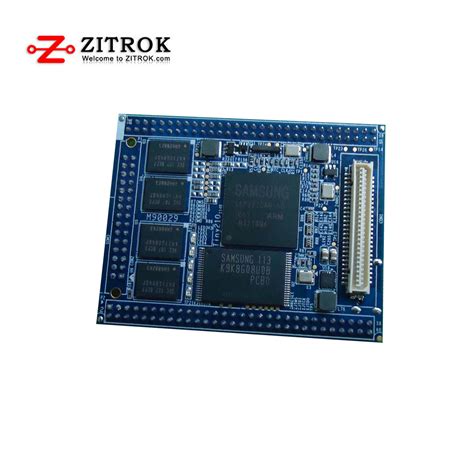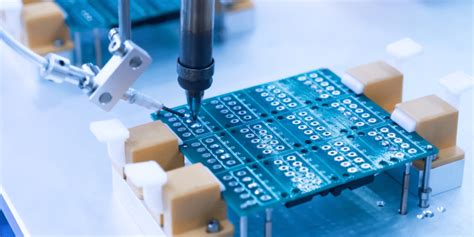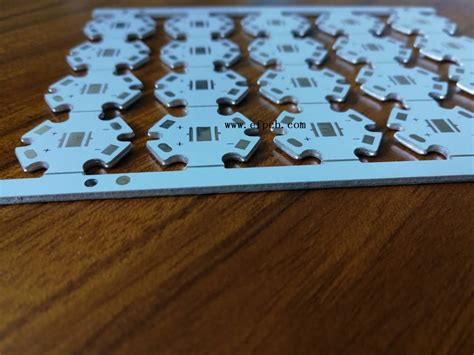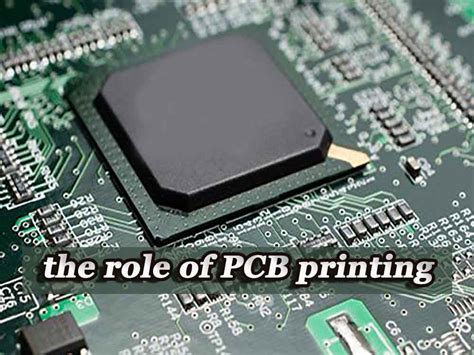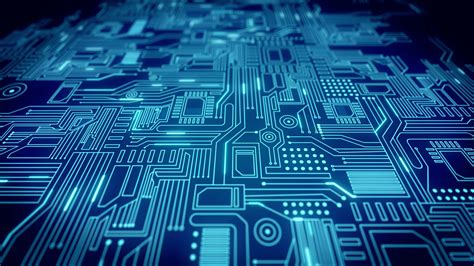Expert PCB Board Factories for Precision Manufacturing Solutions
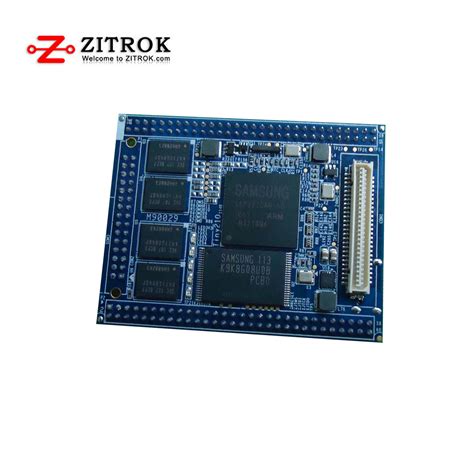
Key Takeaways
When selecting PCB manufacturing partners, you need to balance pcb manufacturing cost with quality and scalability. Leading pcb manufacturing companies leverage certified processes to ensure precision, whether you require prototypes or high-volume production. For instance, advanced fabrication technologies like laser drilling and automated optical inspection (AOI) minimize errors, reducing long-term expenses while maintaining compliance with industry standards such as ISO 9001 and IPC-A-600.
Here’s a quick comparison of critical factors in pcb manufacturing business decisions:
| Factor | Prototyping | Full Production |
|---|---|---|
| Turnaround Time | 24–72 hours | 2–4 weeks |
| Cost Efficiency | Higher per-unit | Volume discounts |
| Customization | High flexibility | Standardized workflows |
Tip: Always verify if your supplier offers end-to-end traceability—this ensures accountability at every stage, from design to delivery.
Modern pcb manufacturing solutions integrate AI-driven design validation to preemptively address potential flaws, which streamlines timelines and reduces material waste. For industries like automotive or aerospace, partnering with factories that specialize in high-reliability PCBs can mitigate risks associated with thermal stress or vibration. Learn more about certified practices to align your project with globally recognized benchmarks.
By prioritizing suppliers that transparently outline pcb manufacturing cost structures and scalability options, you can optimize budgets without compromising on performance. Whether you’re innovating in IoT or industrial automation, the right partner bridges the gap between concept and market-ready solutions.

Global Certified PCB Manufacturing
When sourcing PCB manufacturing solutions globally, partnering with certified providers ensures adherence to international quality standards like ISO, UL, and IPC. These certifications validate that PCB manufacturing companies follow rigorous processes for material selection, design validation, and testing—critical for industries like aerospace or medical devices where reliability is non-negotiable. By choosing certified partners, you gain access to advanced fabrication technologies, such as high-density interconnect (HDI) boards or flex-rigid designs, while maintaining compliance with regional environmental and safety regulations.
Certification also streamlines PCB manufacturing cost management by minimizing rework risks and ensuring consistent output. For example, factories with IATF 16949 certification specialize in automotive-grade boards, reducing defects that could lead to costly recalls. Additionally, global networks of certified manufacturers enable scalable solutions, whether you’re prototyping a niche IoT device or ramping up high-volume production.
For businesses expanding their PCB manufacturing business, certifications act as a competitive differentiator, assuring clients of traceability and accountability. This is especially vital in sectors like defense or telecommunications, where supply chain transparency is mandated. By aligning with certified partners, you not only meet regulatory demands but also future-proof your projects against evolving industry benchmarks.
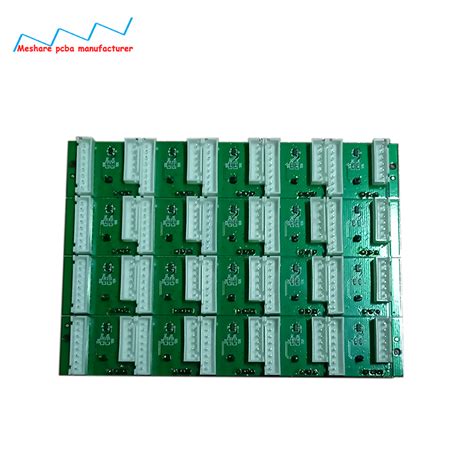
PCB Prototyping and Production
When developing electronic systems, partnering with PCB manufacturing companies that offer both prototyping and full-scale production ensures seamless transitions from concept to deployment. Modern PCB manufacturing workflows integrate advanced design validation tools, allowing you to verify circuit layouts before committing to bulk orders—a critical step for minimizing PCB manufacturing cost and avoiding design flaws. Leading factories utilize laser direct imaging (LDI) and automated optical inspection (AOI) to achieve tolerances as tight as 2/2 mils, ensuring reliability for high-frequency or miniaturized applications.
For startups scaling a PCB manufacturing business, rapid prototyping services (often within 24-48 hours) enable iterative testing, while scalable production lines adapt to fluctuating demand without compromising quality. You’ll find that tier-1 suppliers balance cost-efficiency with compliance, adhering to ISO 9001 or IATF 16949 standards for industries like automotive or aerospace. By leveraging flexible material options—from FR-4 to polyimide—these factories tailor solutions to your project’s thermal, mechanical, or signal integrity needs. Transparent communication channels further streamline timelines, ensuring your prototypes evolve into market-ready products without delays.
Fast-Turnaround PCB Fabrication
When time-sensitive projects demand rapid results, partnering with pcb manufacturing companies that specialize in fast-turnaround fabrication ensures your deadlines stay on track. Modern pcb manufacturing workflows integrate automated design validation, advanced laser drilling, and high-speed assembly lines to slash lead times without compromising precision. Accelerated production cycles are particularly critical for prototyping or iterative design phases, where even a 24-hour delay can disrupt product roadmaps.
However, speed alone isn’t enough—cost efficiency remains paramount. By optimizing material sourcing and leveraging just-in-time inventory systems, leading providers balance pcb manufacturing cost with accelerated timelines. For instance, batch ordering or panelization strategies reduce waste, while modular tooling adapts to diverse design requirements. This approach is vital for startups and enterprises alike, especially in industries like IoT or medical devices, where market windows are narrow.
To maximize value, align your pcb manufacturing business needs with factories offering tiered turnaround options—from 48-hour expedited services to standard 5-day builds. Transparent communication about design complexity and volume ensures accurate timelines. Remember, agile fabrication isn’t just about speed; it’s about maintaining rigorous quality checks at every stage, ensuring reliability even under tight deadlines.
Custom PCB Assembly Innovations
When seeking PCB manufacturing solutions that align with cutting-edge demands, you’ll find that leading PCB manufacturing companies are redefining customization through advanced assembly techniques. By integrating modular design frameworks and automated placement systems, these innovators enable you to tailor circuit boards for niche applications—whether optimizing thermal management for high-power devices or embedding IoT-ready microcomponents.
A critical advantage lies in balancing PCB manufacturing cost with performance. Forward-thinking factories now employ AI-driven predictive analytics to minimize material waste while maintaining ISO-certified precision. For instance, dynamic routing algorithms adjust layer stack-ups in real time, ensuring your prototypes transition seamlessly to mass production without redesign delays. This agility is particularly vital for startups navigating the competitive PCB manufacturing business, where rapid iteration cycles can make or break market entry.
Moreover, mixed-technology assembly—combining surface-mount (SMT) and through-hole components—expands your design flexibility without inflating budgets. Partnering with factories that offer end-to-end testing protocols ensures compliance with automotive or aerospace safety standards, even for low-volume batches. By prioritizing scalability and traceability, these solutions future-proof your projects against evolving industry benchmarks.
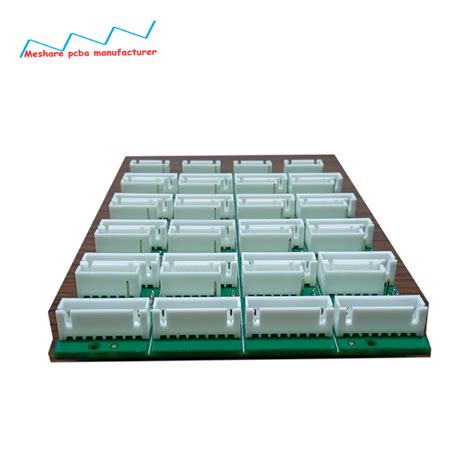
Precision PCB Factories Worldwide
When seeking PCB manufacturing solutions, you’ll find a global network of precision-focused factories designed to meet stringent technical demands. Leading PCB manufacturing companies operate state-of-the-art facilities across Asia, Europe, and North America, combining advanced fabrication technologies with certified quality control protocols. These factories specialize in producing high-density interconnects (HDIs), multilayer boards, and flexible circuits, ensuring compatibility with industries like medical devices, telecommunications, and industrial automation.
A key advantage of partnering with international PCB manufacturing hubs is their ability to balance PCB manufacturing cost efficiencies without compromising performance. By leveraging economies of scale and optimized material sourcing, these facilities reduce lead times while maintaining precision tolerances as tight as ±0.05mm. For businesses scaling their PCB manufacturing business, this global footprint ensures seamless transitions from prototyping to full-scale production, supported by real-time collaboration tools and supply chain transparency.
Moreover, factories adhering to ISO, UL, and IPC standards prioritize traceability and thermal management innovations, critical for applications in harsh environments. Whether you require high-frequency materials for 5G infrastructure or automotive-grade boards with stringent reliability tests, these precision-centric partners deliver end-to-end solutions tailored to your technical and commercial objectives.
Automotive PCB Fabrication
When sourcing PCB manufacturing solutions for automotive applications, you need partners capable of meeting stringent performance and safety standards. Modern vehicles rely on high-temperature resistance, vibration resistance, and miniaturized designs to ensure reliability in harsh environments. Leading PCB manufacturing companies leverage advanced materials like high-Tg laminates and ceramic substrates to optimize thermal management and signal integrity for engine control units (ECUs), ADAS systems, and infotainment modules.
Balancing PCB manufacturing cost with quality is critical, as automotive-grade boards often require multilayer configurations, impedance control, and rigorous testing protocols. Reputable suppliers integrate automated optical inspection (AOI) and thermal cycling tests to validate durability, aligning with IATF 16949 and AEC-Q100 certifications. For innovators in the PCB manufacturing business, collaboration with OEMs during prototyping phases helps streamline design-for-manufacturability (DFM) adjustments, reducing time-to-market while maintaining compliance.
Transitioning from prototyping to volume production demands scalability. Factories offering end-to-end traceability and just-in-time inventory systems ensure seamless integration into automotive supply chains. By prioritizing precision and adaptability, you secure solutions that evolve alongside emerging technologies like electric vehicle (EV) power systems and autonomous driving architectures.
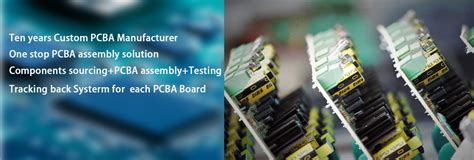
Full-Cycle PCB Manufacturing
When partnering with PCB manufacturing companies that offer end-to-end solutions, you gain access to a seamless process from design validation to final product delivery. Full-cycle PCB manufacturing integrates PCB prototyping, material sourcing, multilayer fabrication, and rigorous testing—all under one roof. This approach minimizes delays, reduces PCB manufacturing cost through optimized workflows, and ensures compliance with industry-specific standards like ISO or IPC-A-610.
Advanced facilities leverage automated assembly lines and AI-driven quality checks to maintain precision across high-volume orders. Whether you’re scaling a PCB manufacturing business or developing mission-critical boards for aerospace, the ability to oversee every stage mitigates risks and accelerates time-to-market. Real-time collaboration with engineers further refines designs, addressing thermal management or signal integrity challenges early. By choosing partners with full-cycle capabilities, you secure not just components, but a strategic advantage in innovation and reliability.
Quality-Certified PCB Production
When sourcing PCB manufacturing services, ensuring adherence to internationally recognized quality standards is non-negotiable. Leading PCB manufacturing companies prioritize certifications like ISO 9001, IPC-A-600, and AS9100, which validate rigorous process controls and material traceability. These benchmarks guarantee that every layer of your board—from substrate selection to final solder mask application—meets exacting performance criteria, especially critical in high-reliability sectors like aerospace or medical devices.
A common concern in the PCB manufacturing business is balancing PCB manufacturing cost with uncompromised quality. However, certified providers streamline this equation by leveraging automated inspection systems and statistical process controls to minimize defects without inflating expenses. For instance, advanced AOI (Automated Optical Inspection) technologies detect micron-level discrepancies early, reducing scrap rates and rework delays. This focus on precision not only safeguards your project timelines but also ensures compliance with industry-specific regulatory frameworks.
Moreover, certified PCB manufacturing partners often offer transparent documentation, including material certifications and test reports, giving you full visibility into production integrity. Whether you’re prototyping or scaling to volume, this traceability becomes a strategic asset—ensuring consistency across batches and simplifying audits. By aligning with factories that embed quality into every workflow, you mitigate risks while building a foundation for long-term innovation.
Conclusion
When selecting PCB manufacturing partners, prioritizing certified processes and global reach ensures your projects meet industry-specific demands. Leading PCB manufacturing companies combine advanced fabrication techniques with rigorous quality controls, allowing you to balance PCB manufacturing cost with performance requirements. Whether scaling prototypes or managing high-volume orders, partnering with facilities that offer end-to-cycle transparency minimizes risks in the PCB manufacturing business, particularly in sectors like aerospace or automotive where precision is non-negotiable. By aligning with factories that invest in automated assembly and real-time monitoring, you secure not only faster turnaround times but also long-term reliability. Ultimately, the right collaboration transforms PCB manufacturing from a logistical task into a strategic advantage, empowering innovation while maintaining compliance with international standards.
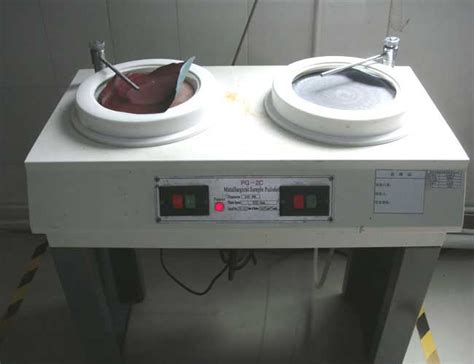
FAQs
How does pcb manufacturing cost vary across different projects?
Costs depend on factors like board complexity, material selection, and volume. High-density designs or specialty substrates often increase expenses, while bulk orders typically reduce per-unit pricing.
What defines a reliable pcb manufacturing companies?
Look for certifications like ISO 9001 or IPC-A-610, advanced equipment for precision fabrication, and proven expertise in your industry—whether aerospace, automotive, or consumer electronics.
Why should you consider pcb manufacturing business partnerships for prototypes?
Collaborating early ensures design-for-manufacturability (DFM) feedback, reducing errors and accelerating time-to-market. Many factories offer rapid prototyping with 24–48-hour turnaround options.
How do quality certifications impact pcb manufacturing outcomes?
Certified processes guarantee adherence to international standards, minimizing defects. For example, AS9100-certified factories meet rigorous aerospace requirements, ensuring reliability in critical applications.
Can pcb manufacturing companies handle both small batches and large-scale production?
Yes, most offer end-to-end solutions, from low-volume prototyping to high-volume assembly. This flexibility lets you scale seamlessly without switching suppliers.
Ready to Optimize Your PCB Manufacturing Process?
Explore tailored solutions for your project needs—please click here to connect with industry-leading experts today.

